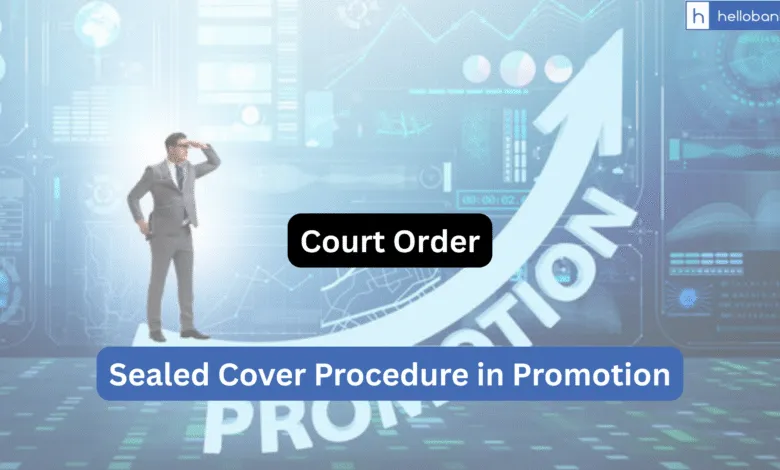Delhi High Court: Sealed Cover Procedure in Promotion Cannot Be Invoked Merely on the Basis of FIR or Investigation

A Division Bench of the Delhi High Court, comprising Justice Navin Chawla and Justice Madhu Jain, has held that the sealed cover procedure in promotions cannot be applied merely because an FIR has been registered or an investigation is pending. The Court clarified that sealed cover can be used only when a charge-sheet in disciplinary proceedings, a charge-sheet in a criminal case, or an order of suspension has been issued.
Background of the Case
A Departmental Promotion Committee (DPC) met on 18 March 2024 to consider officers for promotion to the post of Joint Commissioner. The respondent’s case was kept in a sealed cover, even though he argued that this action was contrary to the law laid down by the Supreme Court in Union of India v. K.V. Jankiraman.
The respondent was facing an FIR registered by the CBI in May 2023 and an ECIR by the Enforcement Directorate under the PMLA, 2002. Draft charge-sheets were also prepared in 2022, and complaints regarding a forged caste certificate and misconduct were under investigation. However, no formal charge-sheet in disciplinary or criminal proceedings had been issued, and the respondent was not placed under suspension.
The Central Administrative Tribunal (CAT), in December 2024, directed the authorities to open the sealed cover and grant the respondent promotion with effect from 1 January 2021 if he was recommended by the UPSC. Aggrieved by this decision, the Union of India filed a writ petition before the High Court.
Arguments Before the Court
The petitioners (Union of India) argued that since serious allegations were pending, including the FIR, ECIR, and complaints of misconduct, the DPC was justified in applying the sealed cover procedure. They relied on earlier rulings such as Union of India v. Kewal Kumar and State of M.P. v. Syed Naseem Zahir, where sealed cover was upheld in cases of serious charges.
On the other hand, the respondent argued that sealed cover could not be applied because none of the pre-conditions were satisfied: there was no charge-sheet in disciplinary or criminal proceedings and he was not suspended. He further pointed out that even the petitioners admitted that the charge memo was kept in abeyance on the advice of the CVC.
Findings of the Court
The High Court noted that as on the date of the DPC, no charge-sheet had been issued and no disciplinary proceedings were pending against the respondent. He was also not under suspension. Therefore, the conditions mentioned in the 1992 Office Memorandum (issued after K.V. Jankiraman) were not fulfilled.
The Court ruled that:
- Mere pendency of an FIR or preliminary investigation does not justify the sealed cover procedure.
- The law is clear that sealed cover can be applied only after the issuance of a charge memo in departmental proceedings or a criminal charge-sheet.
- If allegations are serious, the authorities are free to suspend the employee, which itself would allow sealed cover.
The Court also clarified that the reliance on Kewal Kumar and Syed Naseem Zahir was misplaced since in those cases charge-sheets had already been issued. In the present case, no such proceedings were pending.
Download Court Order PDF (This PDF is available for Premium Users Only. Click here to join premium)
